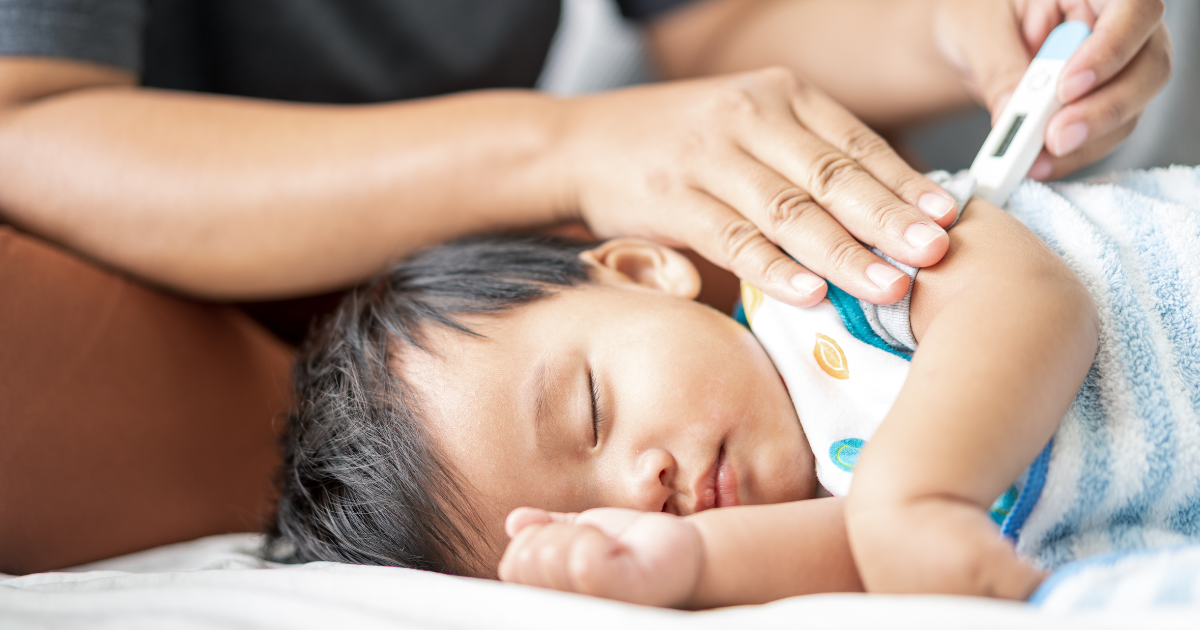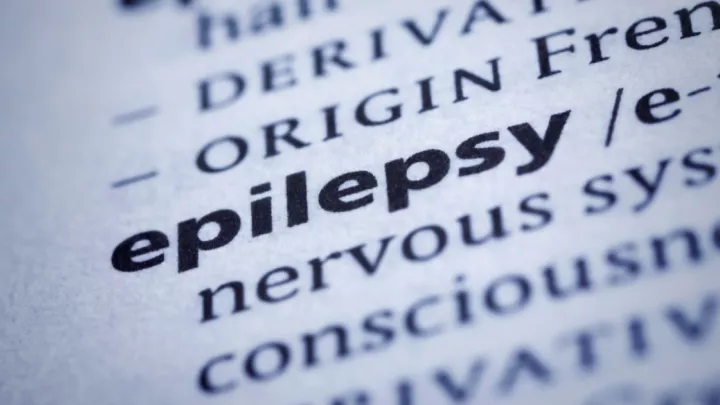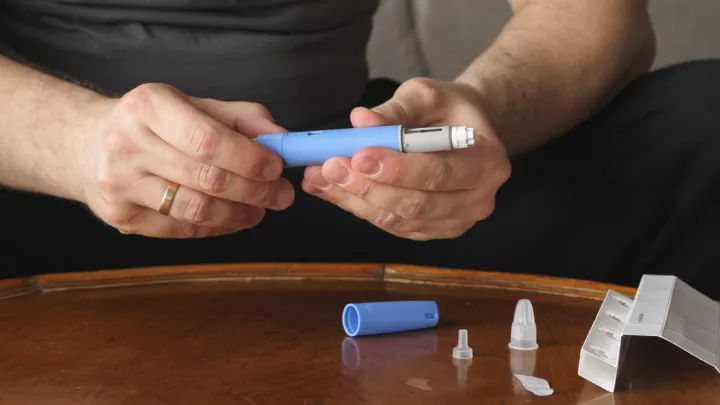Febrile seizures: Why they happen and when they can be serious

Fevers can be concerning for any parent. But if your child also starts to jerk or twitch their body or lose consciousness, it can make things even more worrisome. When a high fever accompanies jerking or twitching, these are common signs of a febrile seizure.
Febrile seizures can be scary to witness, but they're usually short-lived and harmless. However, some children can develop epilepsy, a brain disorder that causes recurring, unprovoked seizures. Read on to learn more about febrile seizures and what to do if your child experiences one.
What are febrile seizures, and what causes them?
Febrile seizures occur in children, typically between 3 months to 6 years old, and are triggered by a fever above 100.4 F. The fever may accompany common childhood illnesses, such as a cold, the flu or an ear infection. If a seizure develops with a fever of less than 100.4 F, this could be a sign of epilepsy or another seizure disorder.
There is also a slight tendency for febrile seizures to run in families. If you or another close relative have a history of seizures, your child may be more likely to have them. Additionally, studies show a small increased risk for febrile seizures following certain childhood vaccines, such as the measles, mumps, and rubella or varicella (chickenpox) vaccines.
What are the symptoms of a febrile seizure?
A child having a febrile seizure may:
- Have a fever higher than 100.4 F (38.0 C)
- Shake all over
- Twitch or jerk their arms and legs
- Lose consciousness
Febrile seizures are usually brief, lasting anywhere from a few seconds to a couple of minutes. It could be something serious if your child experiences a longer seizure.
The following signs may indicate something more serious:
- Recurring seizures or more than one seizure in a 24-hour period
- Vomiting
- Stiff neck
- Trouble breathing or turning blue
- Trouble waking up or excessive sleepiness after a seizure
What should I do if my child experiences a febrile seizure?
A febrile seizure should be handled like any other seizure. If your child has a febrile seizure, remain calm and:
- Gently place your child on the floor or the ground.
- Remove any nearby objects.
- Place your child on their side to prevent choking.
- Loosen any clothing around their head and neck.
- Watch for signs of breathing problems, including bluish color on the face.
- Try to keep track of how long the seizure lasts.
Things not to do during a febrile seizure:
- Do not try to hold or restrain your child.
- Do not put anything in your child's mouth.
- Do not try to give your child fever-reducing medicine.
- Do not try to put your child into cool or lukewarm water to cool off.
When the seizure is over, it’s a good idea to take your child to the doctor to find out the cause of the fever if it’s unknown. The doctor will likely examine your child and ask you to describe the seizure. In most cases, seizure treatment is not necessary. However, your doctor may refer your child to a brain specialist, or neurologist, for further testing and an evaluation. The neurologist may order an electroencephalograph, also known as an EEG, to monitor the electrical activity in your child’s brain or magnetic resonance imaging, also known as MRI, to look at the structure of your child’s brain.
When to call 911
Get emergency medical care if your child:
- Has a seizure that lasts longer than three minutes – convulsive seizures lasting longer than five minutes can cause brain damage
- Has trouble breathing or begins turning blue
- Isn't responding normally after the seizure
If your child has another seizure within 24 hours, it may not be necessary to call 911. However, it’s best to be evaluated by a doctor as soon as possible.
“Most seizures are short-lived because our brains have the ability to effectively extinguish seizures, including febrile and non-febrile seizures,” says Nebraska Medicine neurologist Olga Taraschenko, MD, PhD. “But if your child experiences convulsions that last longer than three minutes, or you notice other severe symptoms, such as difficulty breathing or a stiff neck, it’s important to seek medical help.”
Concerned about seizures?
Call 800.922.0000 to schedule an appointment.






